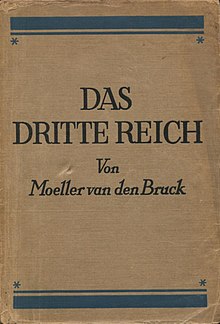
Fascism is a far-right, authoritarian, ultranationalist political ideology and movement, characterized by a dictatorial leader, centralized autocracy, militarism, forcible suppression of opposition, belief in a natural social hierarchy, subordination of individual interests for the perceived good of the nation or race, and strong regimentation of society and the economy. Opposed to anarchism, democracy, pluralism, egalitarianism, liberalism, socialism, and Marxism, fascism is placed on the far-right wing within the traditional left–right spectrum.
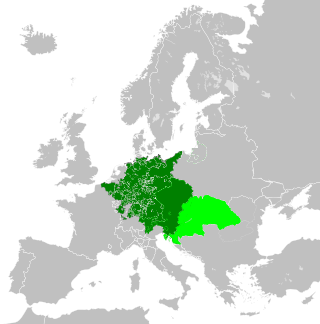
Reich is a German word whose meaning is analogous to the English word "realm"; this is not to be confused with the German adjective "reich" which means "rich". The terms Kaiserreich and Königreich are respectively used in German in reference to empires and kingdoms. The Cambridge Advanced Learner's Dictionary indicates that in English usage, the term "Third Reich" refers to "Germany during the period of Nazi control from 1933 to 1945".

Edgar Julius Jung was a German lawyer born in Ludwigshafen in the Kingdom of Bavaria. He was a leader of the conservative revolutionary movement in Germany which stood not only in opposition to the Weimar Republic, whose parliamentarian system he considered decadent and foreign-imposed, but also opposed National Socialism. Jung was murdered in the 1934 Night of the Long Knives purge.
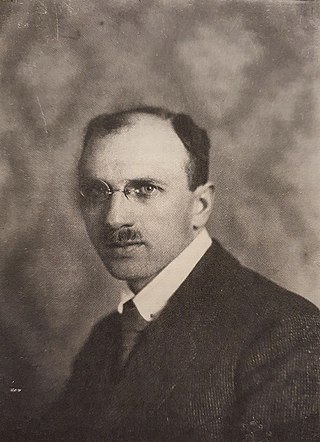
Ernst Niekisch was a German writer and politician. Initially a member of the Social Democratic Party (SPD) and of the Alte Sozialdemokratische Partei (ASP), he later became a prominent exponent of the National revolutionary branch of the Conservative Revolution and National Bolshevism.

The political views of Adolf Hitler, dictator of Germany from 1933 to 1945, have presented historians and biographers with some difficulty. Hitler's writings and methods were often adapted to need and circumstance, although there were some steady themes, including antisemitism, anti-communism, anti-slavism, anti-parliamentarianism, German Lebensraum, belief in the superiority of an "Aryan race" and an extreme form of German nationalism. Hitler personally claimed he was fighting against "Jewish Marxism" and "international Jewish finance".
The Conservative Revolution, also known as the German neoconservative movement, or new nationalism, was a German national conservative movement prominent during the Weimar Republic and Austria, in the years 1918–1933.
The Fourth Reich is a hypothetical Nazi Reich that is the successor to Adolf Hitler's Third Reich (1933–1945). The term has been used to refer to the possible resurgence of Nazi ideas, as well as pejoratively by political opponents.
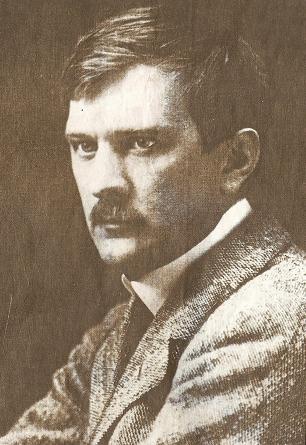
Arthur Wilhelm Ernst Victor Moeller van den Bruck was a German cultural historian, philosopher, and key intellectual figure of the Conservative Revolution.

Alfred Baeumler, was an Austrian-born German philosopher, pedagogue and prominent Nazi ideologue. From 1924 he taught at the Technische Universität Dresden, at first as an unsalaried lecturer Privatdozent. Bäumler was made associate professor (Extraordinarius) in 1928 and full professor (Ordinarius) a year later. From 1933 he taught philosophy and political education in Berlin as the director of the Institute for Political Pedagogy.
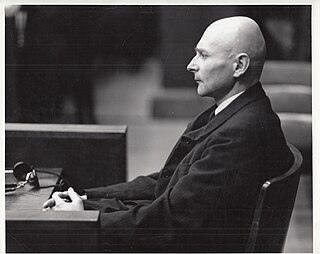
Friedrich Hielscher was a German intellectual involved in the Conservative Revolutionary movement during the Weimar Republic and in the German resistance during the Nazi era. He was the founder of an esoteric or Neopagan movement, the Unabhängige Freikirche, which he headed from 1933 until his death.
Conservatism in Germany has encompassed a wide range of theories and ideologies in the last three hundred years, but most historical conservative theories supported the monarchical/hierarchical political structure.
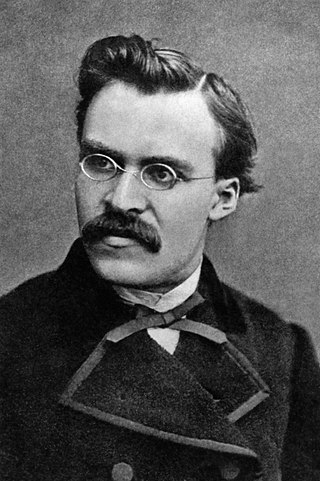
Friedrich Nietzsche's influence and reception varied widely and may be roughly divided into various chronological periods. Reactions were anything but uniform, and proponents of various ideologies attempted to appropriate his work quite early.
Max Oehler was a German army officer and archivist for the "Nietzsche-Archiv." Oehler pursued his career in the German Empire's military until the end of World War I and the German November Revolution. Under the Weimar Republic, which he opposed, he served as an archivist in his cousin Elisabeth Förster-Nietzsche's "Nietzsche-Archiv" in Weimar. After Förster-Nietzsche's death in 1935, he succeeded her as de facto leader of the Archiv. A devoted Nazi since the early 1930s, Oehler tried to popularize his National Socialist view of Nietzsche. After the German defeat in World War II, Oehler was imprisoned by Soviet occupation forces and died c. March 1946 in an improvised prison in Weimar.

Fascist movements in Europe were the set of various fascist ideologies which were practiced by governments and political organizations in Europe during the 20th century. Fascism was born in Italy following World War I, and other fascist movements, influenced by Italian Fascism, subsequently emerged across Europe. Among the political doctrines which are identified as ideological origins of fascism in Europe are the combining of a traditional national unity and revolutionary anti-democratic rhetoric which was espoused by the integral nationalist Charles Maurras and the revolutionary syndicalist Georges Sorel.

Hermann Ehlers was a German politician. He was the second president of the Bundestag from 19 October 1950 to 29 October 1954.
Third Empire may refer to:
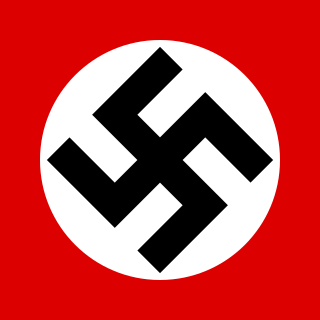
Nazism, formally National Socialism, is the far-right totalitarian socio-political ideology and practices associated with Adolf Hitler and the Nazi Party (NSDAP) in Germany. During Hitler's rise to power in 1930s Europe, it was frequently referred to as Hitler Fascism and Hitlerism. The later related term "neo-Nazism" is applied to other far-right groups with similar ideas which formed after the Second World War when the Third Reich collapsed.

German nationalism is a political ideology and historical current in Austrian politics. It arose in the 19th century as a nationalist movement amongst the German-speaking population of the Austro-Hungarian Empire. It favours close ties with Germany, which it views as the nation-state for all ethnic Germans, and the possibility of the incorporation of Austria into a Greater Germany.
Agrarian conservatism in Germany was a type of conservatism that began to wane in popularity prior to the rise of the Nazi Party.
